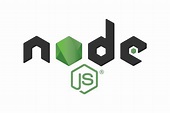Node.js Framework

What is Node.js?
Node.js is an open-source, cross-platform runtime environment that allows developers to run JavaScript code outside the browser. It is built on Chrome's V8 JavaScript engine and is widely used for building fast, scalable server-side applications.
Why Use Node.js?
- Uses JavaScript for both frontend and backend
- Event-driven and non-blocking architecture for high performance
- Great for building real-time applications (e.g., chat apps, live feeds)
- Large ecosystem via npm (Node Package Manager)
Key Features of Node.js
- Asynchronous and Non-blocking I/O: Handles multiple requests efficiently
- Single-threaded event loop: Optimized for concurrency
- Lightweight: Uses minimal resources
- Fast execution: Built on Google's V8 engine
Common Use Cases
- RESTful APIs
- Real-time applications like chat and gaming
- Microservices architecture
- Streaming services
Popular Node.js Frameworks
- Express.js: Minimal and flexible web application framework
- NestJS: TypeScript-based framework for building scalable apps
- Koa: Lightweight and modern alternative to Express
- Sails.js: MVC framework inspired by Ruby on Rails
Node.js Architecture
- Single-threaded event loop
- Handles concurrent requests using callbacks and Promises
- Scalable and suitable for I/O-heavy operations
Advantages of Node.js
- Same language for both client and server
- Fast execution and scalable performance
- Rich ecosystem with thousands of npm packages
- Active developer community
Limitations
- Not ideal for CPU-intensive tasks
- Callback hell in complex scenarios (solved by async/await)
← Back to Home
